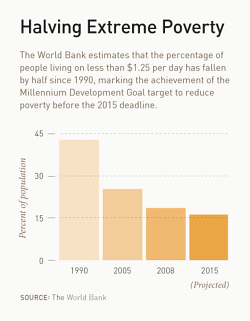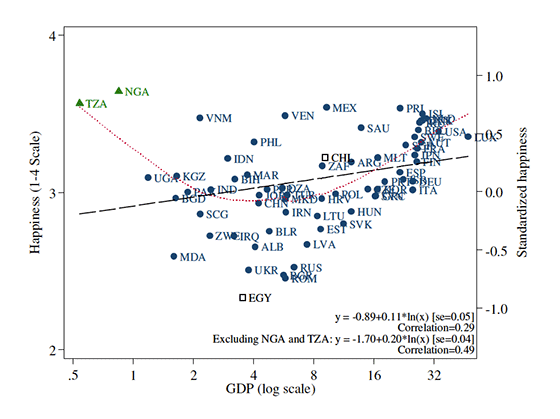Towards a Science of Morality: A Reply to Massimo Pigliucci
In this year’s annual Edge.org question “What should we be worried about?” I answered that we should be worried about “ The Is-Ought Fallacy of Science and Morality.” I wrote: “We should be worried that scientists have given up the search for determining right and wrong and which values lead to human flourishing”. Evolutionary biologist and philosopher of science Massimo Pigliucci penned a thoughtful response, which I appreciate given his dual training in science and philosophy, including and especially evolutionary theory, a perspective that I share. But he felt that my scientific approach added nothing new to the philosophy of morality, so let me see if I can restate my argument for a scientific foundation of moral principles with new definitions and examples.
First, morality is derived from the Latin moralitas, or “manner, character, and proper behavior.” Morality has to do with how you act toward others. So I begin with a Principle of Moral Good:
Always act with someone else’s moral good in mind, and never act in a way that it leads to someone else’s moral loss (through force or fraud).
You can, of course, act in a way that has no effect on anyone else, and in this case morality isn’t involved. But given the choice between acting in a way that increases someone else’s moral good or not, it is more moral to do so than not. I added the parenthetical note “through force or fraud” to clarify intent instead of, say, neglect or acting out of ignorance. Morality involves conscious choice, and the choice to act in a manner that increases someone else’s moral good, then, is a moral act, and its opposite is an immoral act.
Given this moral principle, the central question is this: On what foundation should we ground our moral decisions? We have to ground the foundations of morality on something, and we secularists (skeptics, humanists, atheists, et al.) are in agreement that “divine command theory” is untenable not only because there probably is no God, but even if there is a God divine command theory was refuted 2500 years ago by Plato through his “Euthyphro’s dilemma,” in which he asked “whether the pious or holy is beloved by the gods because it is holy, or holy because it is beloved of the gods?”, showing how it must be the former—moral principles must stand on their own with or without God. Rape, for example, is wrong whether or not God says it is wrong (in the Bible, in fact, God offers no prohibition against rape, and in fact seems to encourage it in many instances as a perquisite of war for victors). Adultery, which is prohibited in the Bible, would still be wrong even if it were not listed in the Decalogue.
How do we know that rape and adultery are wrong? We don’t need to ask God. We need to ask the affected moral agent—the rape victim in question, or our spouse or romantic partner who is being cuckolded. They will let you know instantly and forcefully precisely how they feel morally about that behavior.
Here we see that the Golden Rule (“Do unto others as you would have them do unto you”) has a severe limitation to it: What if the moral receiver thinks differently from the moral doer? What if you would not mind having action X done unto you, but someone else would mind it? Most men, for example, are much more receptive toward unsolicited offers of sex than are women. Most men, then, in considering whether to approach a woman with an offer of unsolicited sex, should not ask themselves how they would feel as a test. This is why in my book The Science of Good and Evil I introduced the Ask-First Principle:
To find out whether an action is right or wrong, ask first.
The moral doer should ask the moral receiver whether the behavior in question is moral or immoral. If you aren’t sure that the potential recipient of your action will react in the same manner you would react to the moral behavior in question, then ask…before you act. (This principle applies to rational sane adults and not to children or mentally ill adults. Asking a 12-year old girl raised in a polygamous family belonging to the Fundamentalist Latter Day Saints if she feels it is moral to marry a man in his 60s who is already married to many other women is not a rational test because she does not have the capacity for moral reasoning.)
But what is the foundation for why we should care about the feelings of potentially affected moral agents? To answer this question I turn to science and evolutionary theory.
Given that moral principles must be founded on something natural instead of supernatural, and that science is the best tool we have devised for understanding the natural world, applying evolutionary theory to not only the origins of morality but to its ultimate foundation as well, it seems to me that the individual is a reasonable starting point because, (1) the individual is the primary target of natural selection in evolution, and (2) it is the individual who is most affected by moral and immoral acts. Thus:
The survival and flourishing of the individual is the foundation for establishing values and morals, and so determining the conditions by which humans best survive and flourish ought to be the goal of a science of morality.
Here we find a smooth transition from the way nature is (the individual struggling to survive and flourish in an evolutionary context) to the way it ought to be (given a choice, it is more moral to act in a way that enhances the survival and flourishing of other individuals). Here are three examples:
In his annual letter Bill Gates outlined how and why the progress of the human condition can best be implemented when tracked through scientific data: “I have been struck again and again by how important measurement is to improving the human condition. You can achieve amazing progress if you set a clear goal and find a measure that will drive progress toward that goal.”

One notable sign of progress is seen in this graph from Gates’ Annual Letter (right).
If the survival and flourishing of the individual is the foundation of values and morals, then this graph tracks moral progress because we can say objectively and absolutely that reducing extreme poverty by half since 1990 is real moral progress. On what basis can we make such a claim? Ask the people who are no longer living on less than $1.25 a day. They will tell you that living on more than $1.25 a day is absolutely better than living on less than $1.25 a day. Why is it better? Because individuals are more likely to survive and flourish when they have the basics of life.
This is why Bill Gates is backing with his considerable wealth and talent the United Nations’ Millennium Development Goals program that is supported by 189 nations, in which the year 2015 was set as a deadline for making specific percentage improvements across a range of areas including health, education, and basic income. Gates reports, for example, that the number of polio cases has decreased from 350,000 in 1988 to 222 in 2012. Is that a moral good? Ask the 350,000 polio victims. They’ll tell you. Or ask the 5.1 million children under the age of 5 who didn’t die in 2011, who in 1990 would have died (Unicef reports that the number of children under 5 years old who died worldwide was 12 million in 1990 and 6.9 million in 2011).

Caption from Gates’ Annual Letter: Getting a closer look at charts documenting rural health progress at the Germana Gale Health Post in Ethiopia. Over the past year I’ve been impressed with progress in using data and measurement to improve the human condition (Dalocha, Ethiopia, 2012).
A second example may be found on the opposite end of the economic sale in a study conducted for the National Bureau of Economic Research entitled “Subjective Well-Being, Income, Economic Development and Growth” by the University of Pennsylvania economists Daniel Sacks, Betsey Stevenson, and Justin Wolfers, in which they compared survey data on subjective well-being (“happiness”) with income and economic growth rates in 140 countries. The economists found a positive correlation between income and happiness within individual countries, in which richer people are happier than poorer people; and they also found a between-country difference in which people in richer countries are happier than people in poorer countries. As well, they found that an increase in economic growth was associated with an increase in subjective well being: “These results together suggest that measured subjective well-being grows hand in hand with material living standards.” How much difference? “A 20 percent increase in income has the same impact on well-being, regardless of the initial level of income: going from $500 to $600 of income per year yields the same impact on well-being as going from $50,000 to $60,000 per year.” Contrary to previous studies, the economists found no upper limit in which more money does not correlate with more happiness. As well, on a 0–10 scale measuring “life satisfaction,” people in poor countries averaged a 3, people in middle-income countries averaged a 5–6, and people in rich countries averaged a 7–8 (Americans rate their life satisfaction as a 7.4). The economists’ conclusion confirms my moral science theory that the survival and flourishing of individuals is what counts:
The fact that life satisfaction and other measures of subjective well-being rise with income has significant implications for development economists. First, and most importantly, these findings cast doubt on the Easterlin Paradox and various theories suggesting that there is no long-term relationship between well-being and income growth. Absolute income appears to play a central role in determining subjective well-being. This conclusion suggests that economists’ traditional interest in economic growth has not been misplaced. Second, our results suggest that differences in subjective well-being over time or across places likely reflect meaningful differences in actual well-being.
Here is the figure for the relationship between happiness and GDP from this study:

World Values Survey, 1999–2004, and author’s regressions. Sources for GDP per capita are described in the text. The happiness question asks, “Taking all things together, would you say you are: ‘very happy,’ ‘quite happy,’ ‘not very happy,’ [or] ‘not at all happy’?” Data are aggregated into country averages by first standardizing individual level data to have mean zero and standard deviation one, and then taking the within-country average of individual happiness. The dashed line plots fitted values from the reported OLS regression (including TZA and NGA); the dotted line gives fitted values from a lowess regressions. The regression coefficients are on the standardized scale. Both regressions are based on nationally representative samples. Observations represented by hollow squares are drawn from countries in which the World Values Survey sample is not nationally representative; see Stevenson and Wolfers (2008), appendix B, for further details. Sample includes sixty-nine developed and developing countries.
Why does money matter morally? Because it leads to a higher standard of living. Why does a higher standard of living matter morally? Because it increases the probability that an individual will survive and flourish. Why does survival and flourishing matter morally? Because it is the basis of the evolution of all life on earth through natural selection.
There are many more examples like these in which we can employ science to derive all sorts of findings that show how various social, political, and economic conditions lead to an increase or decrease of the survival and flourishing of individuals. This is why in my Edge.org essay I discussed data from political scientists and economists showing that democracies are better than dictatorships and that countries with more open economic borders and free trade are better off than countries with more closed economic borders and restricted trade (think North Korea, whose citizens are on average several inches shorter than their South Korean counterparts because of their crappy diets). These are measurable differences that allow us to draw scientific conclusions about moral progress or regress, based on the increase or decrease of the survival and flourishing of the individuals living in those countries. The fact that there may be many types of democracies (direct v. representative) and economies (with various trade agreements or membership in trading blocks) only reveals that human survival and flourishing is multi-faceted and multi-causal, and not that because there is more than one way to survive and flourish it means that all political, economic, and social systems are equal. They are not equal, and we have the scientific data and historical examples to demonstrate which ones increase or decrease the survival and flourishing of individuals.

In this Feb. 6, 2013 photo, bystanders watch as a woman accused of witchcraft is burned alive in the Western Highlands provincial capital of Mount Hagen in Papua New Guinea.
(Credit: AP)
One final example on the regress side of the moral ledger: On Wednesday, February 6, 2013, a 20-year old woman and mother of one named Kepari Leniata was burned alive in the Western Highlands of Papua New Guinea because she was accused of sorcery by the relatives of a six-year-old boy who died on February 5. As in witch hunts of old, the conflagration on a pile of rubbish was preceded by torture with a hot iron rod, after which she was bound and doused in gasoline and ignited while surrounded by gawking crowds that prevented police and authorities from rescuing her. Tragically, a 2010 Oxfam study reported that beliefs in sorcery and witchcraft are not uncommon in the highlands of New Guinea, as well as in many parts of Melanesia in which many people still “do not accept natural causes as an explanation for misfortune, illness, accidents or death,” and instead place the blame for their problems on supernatural sorcery and black magic.
By now it seems risibly superfluous to explain why this is immoral and what the solution is, but in case there is any doubt: We know that belief in supernatural sorcery and witchcraft and their concomitant consequences of torturing and murdering whose so accused is wrong because it decreases the survival and flourishing of individuals—just ask first the woman about to be torched. The immediate solution is the enforcement of laws prohibiting such acts. The ultimate solution is science and education in understanding the natural causes of things and the debunking of supernatural beliefs in sorcery and witchcraft. And it is science that tells us why witchcraft and sorcery is immoral.
Note to my readers: What I am outlining here is the basis for my next book, The Moral Arc of Science, which I am researching and writing now, so I ask you to post your critiques here or email me your constructive criticisms. My role model is Charles Darwin, who solicited criticisms of his theory of evolution and included them in a chapter entitled “Difficulties on Theory” in On the Origin of Species. Of course, if you agree with me, and/or think of additional examples in support of my theory, then I would appreciate hearing those as well!

